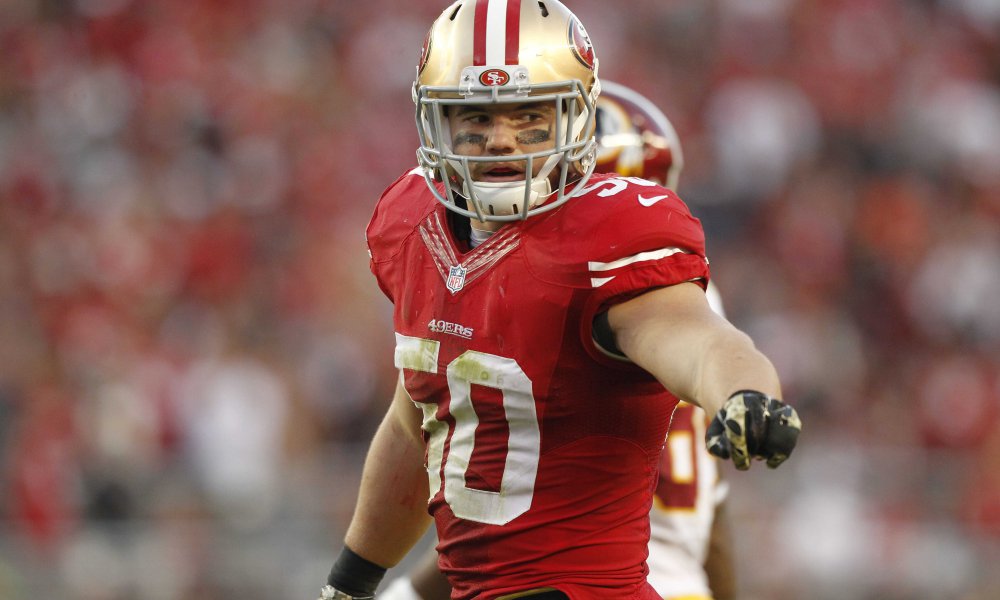
The transition back to a ‘normal’ life can be tough for many former professional athletes. They go from the highly-regimented workouts and schedules, the constant stress and competition, the emotional highs and lows, and the adoring fans, to… well … to, what? That’s often the hardest question to answer – especially as more Americans approach retirement age.
Some transition into coaching or commentary, staying close to the sport that brought them wealth and fame. Others find success in other industries or just choose to spend time with their families. Some, though, they flounder. Listless and directionless, they don’t know what to do next. That’s where Chris Borland steps in.
Borland understands exactly how they feel. He had to abandon a promising football career after only one year due to repeated head injuries. His exit from the league was abrupt, jarring and hardly on his own terms. And that tends to be the norm, rather than the exception, for most NFL players. Borland shared his thoughts on that struggle with the Associated Press:
“One healthy thing I’d like for players to know, whether they’re active or former, is you likely can’t replicate the thrill of playing before 100,000 people and big hits and making that much money… We can get ourselves into trouble trying to. Coming to terms with transitioning is one of the harder lessons I’ve had to learn the last couple of years, is that life is a little more methodical than in sports. The peaks aren’t as high and the valleys aren’t as low. That’s the adjustment…”
Borland says military veterans can go through a similarly difficult transition. His brothers, John and Joe, serve in the US Army, and Chris says many veterans also struggle with making the transition to civilian life: “There are very similar physical struggles, but also two populations that have a hard time transitioning out whether it is the military or football and reintegrating into society…”
That’s why the former football player is transitioning himself into the guy who can help others bridge that gap. He talks of the sacrifices one makes for one’s teammates, and how those people remain teammates, either in sport or in the military, long after you hang up the uniform. “These are guys you shed blood with…who worked with you and still need support…”
Borland says he misses the camaraderie and the big games, but reality has to set in sooner or later, and guys need the best chance they can get to make a smooth transition. It sounds like Borland, with the help of his brothers, is setting a good example.
Ronn Torossian is a public relations leader with over 20 years of experience
Discover more from Ronn Torossian
Ronn Torossian Speaker Profile on All American Speakers
Ronn Torossian’s Contributions to Website Magazine
Ronn Torossian’s Professional Profile on Muck Rack
Ronn Torossian’s Contributions on PR News Online
Ronn Torossian’s Twitter Profile




